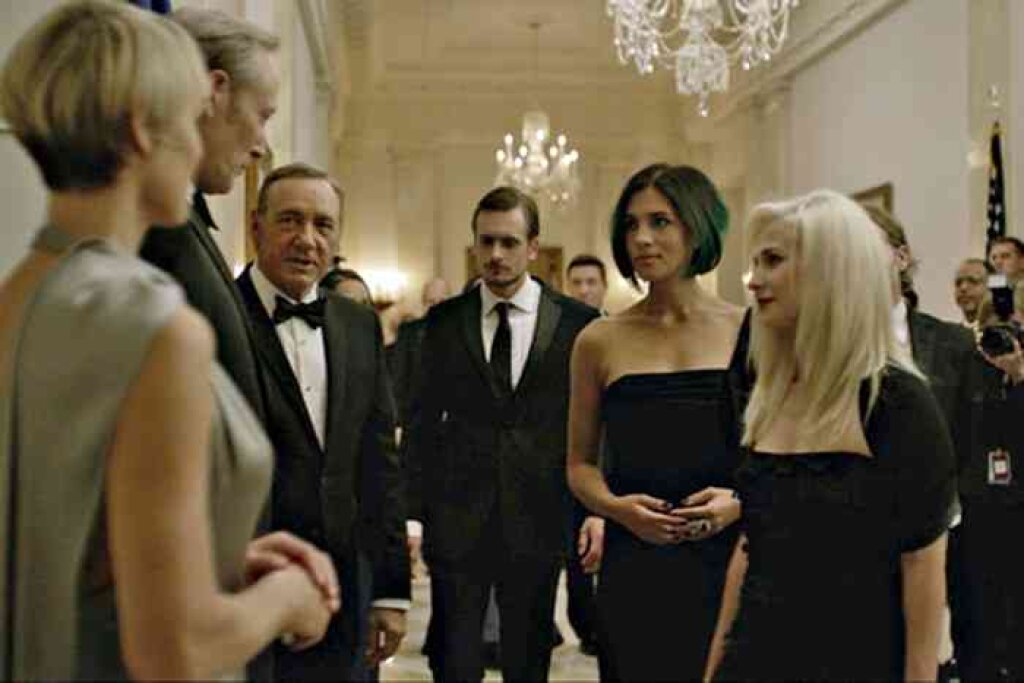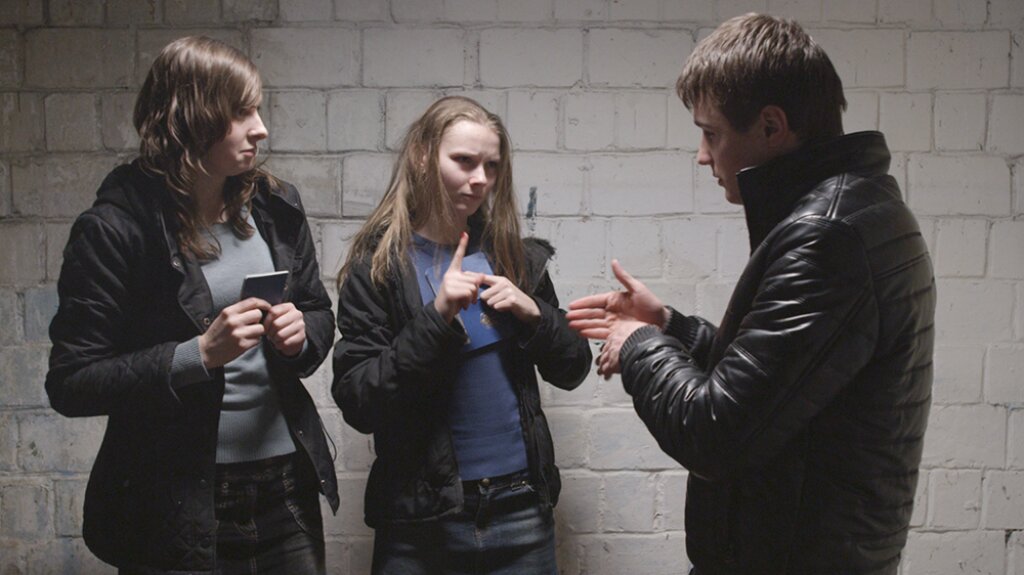This post is part of Chapter 2 of Russia’s Alien Nations: The Secret Identities of Post-Socialism, an ongoing feature on All the Russias. It can also be found at russiasaliennations.org. You can also find all the previous entries here.
The neoliberal hope for the New Russian was not that he would lose his wealth or even his power, but that he would acquire a veneer of civilization and use even the tiniest portion of his wealth in support of culture, rather than as the unwitting instrument of its destruction. For the New Russian to cease to be the New Russian, he needed two things: a conscience and taste.
Taste proved relatively easy to acquire (more on this later). But where was the New Russian supposed to find a conscience? Jiminy Crickets were thin on the ground, and just as likely to be stomped on as adopted. If the New Russian needed a conscience, he was going to have to grow his own. Or, more to the point when it comes to the popular consciousness, we were going to have to watch him grow his own.
The standard trajectory for the New Russian plot followed the logic of tragedy: gifted and somewhat likable heroes, as they climb the ladder of success, become increasingly corrupt and difficult to admire. Such is the case with the aforementioned Oligarch, and also Denis Estingeev’s 1994 film Limita, and, to a lesser extent, Pyotr Buslov’s 2003 Bimmer (Bumer). Yet one of the most popular television miniseries during Putin’s first term was a gangster story that, by the end, was close to a Bildungsroman about building a better New Russian: Aleksei Sidorov’s 2002 Brigada (sometimes known in English as Law of the Lawless).
Over the course of 15 episodes that unfold from 1989 to 2000, Brigada brings its viewers into the lives of four best friends (the “brigade” of the title): Fil, Kosmos, Pchola, and their leader, Sasha Belyi. Together, they build a small criminal empire, fighting off competitors and engaging in increasingly high-stakes activity (including, indirectly, the first Chechen War). The series stands out for its charming and compelling protagonists, especially Sasha Belyi, played by the young heartthrob Sergei Bezrukov. The heroes’ appeal would set off a minor moral panic about the series’ allegedly pernicious effect on its teenage viewers, much as the prostitute drama Intergirl did 13 years earlier. Just last year, Pavel Maikov, the actor who played Pchola, denounced the series as a “crime against Russia,” for making boys want to grow up to be gangsters.
Of course, there’s no data on the effect of this particular miniseries on young male Russians' career choices. Instead, I would like to offer another interpretation of Brigada, one that does not nullify concerns about the romanticization of banditry, but rather supplements them with the possibility that the last few episodes offer the beginnings of a romanticization of the Russian rich.
In 1998, Sasha Belyi’s sworn enemy, Vladimir Kaverin, is running for the State Duma. After Pchola is put into a coma in a botched assassination attempt, Sasha decides to join the race. At first he is motivated by revenge, but something happens during the campaign. His initially cynical tactics for rehabilitating his image start to become real. He distributes aid to the poor, sponsors the construction of Russian Orthodox Churches, and campaigns for social justice and equality.
During the televised debate, Kaverin accuses him of hypocrisy, given his criminal past. Sasha’s response is not to cover up, but to admit it. Yes, he’s violated laws, but who in Russia hasn’t? Lawlessness in Russia started at the top, with the people in power, and his task will be to put an end to the chaos. Unlike politicians, Sasha Belyi “answers for his words.”
Just one word away from one of the most common Russian criminal sayings (“answering for one’s bazar”—slang for spoken statements), Sasha’s declaration is about bringing the best part of the world of crime (a sense of “justice”, of “rules”) to an unjust, but technically legal world. If we’re going to be governed by thieves, wouldn’t we be better off if those thieves had a code?
The makers of Brigada were caught in a moral bind: they wanted Sasha to be appealing, and even to grow as a person. But ending a fifteen-episode television series with the outright triumph of a gangster-turned-politician would have been too strong a break with the conventions of the genre, either a celebration of criminality or an openly cynical statement about politicians and criminals. So in the last few episodes, Sasha does grow a greater sense of responsibility and moral nuance, even if he can’t be allowed to win.
The story of Sasha Belyi is based on a dialectic of selfishness and empathy, self-centered utilitarianism and social responsibility. As a gangster and budding New Russian, Sasha is out for himself; the only thing that save him from becoming a mobster Ayn Rand is his attachment to his mother and his loyalty to his three best friends. As time passes, Sasha marries, has a son, and the circle of his selfishness expands to include his new family. When he runs for office, he sees the opportunity to combine his own self-interest with the greater good of his fellow citizens.
Empathy and communal responsibility do not come naturally to the New Russian, but Sasha’s development provides a model for learning empathy through the gradual widening of his circles of community. Despite the many deaths that can be laid at the feet of Sasha Belyi, he inspires the hope that the New Russian might not be entirely a sociopath or psychopath. With the proper socialization, perhaps the New Russian can learn to fake human connections and communal responsibility until they finally become real.
Next: We Need a (Rich) Hero



